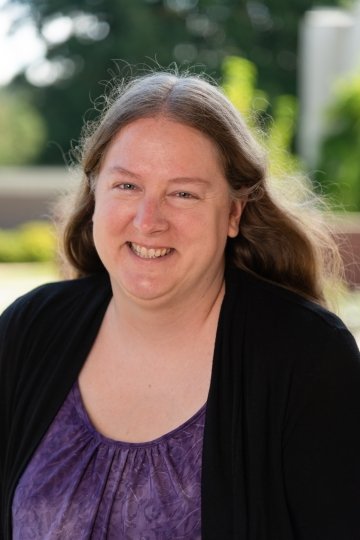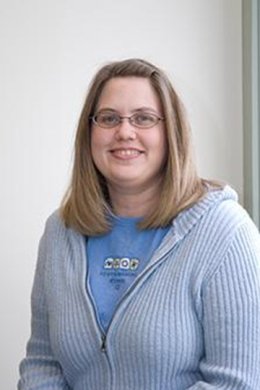
Mathematics
The mathematics program at Saint Martin’s University is designed to provide mathematics majors with a strong foundation in traditional mathematical skills, provide support to other majors, such as engineering, in which solid math skills are a mandate and help liberal arts majors develop an appreciation for the crucial role mathematics plays in modern society.
Why Saint Martin's University?
- Faculty members bring students to regional conferences, where students are given the opportunity to present their research in a professional setting.
- A strong math tutoring program provides reliable help to struggling students, as well as employment for student tutors.
- The small student/teacher ratio allows the faculty to provide one-on-one working relationships with students to further strengthen and expand their mathematical skills.
- Internship opportunities have been available with H&R Block, the Department of Revenue, Costco, and Target.
- Our graduates frequently find employment in secondary schools, insurance firms, and the financial or computing divisions of large companies.
The mathematics faculty members bring to the classroom a broad range of hands-on expertise in areas that include:
- Applied Mathematics
- Linear Algebra
- Probability and Statistics
- History of Mathematics
- Geometry
- Abstract Algebra
- Real and Complex Analysis
Research and internships
Internship opportunities vary! Previous internship opportunities have been available with H&R Block, the Department of Revenue, Costco, and Target.
The top 15 highest-earning college degrees share a core factor -- mathematics, according to a PayScale statistic cited by the Mathematics Association of America. Mathematics opens the door to a wide range of career opportunities.
Mathematics Placement Exam
The mathematics placement exam will identify the course number(s) of the introductory math course(s) for which the student is best prepared. All students need to take the mathematics placement exam if they do not have acceptable AP scores and/or transfer credit for prerequisite courses before class registration at summer orientation.
Mathematics Requirements
CORE requirements (40-46 credit hours)
Visit the undergraduate academic catalog for a complete breakdown of CORE (general) requirements for bachelor's degrees.
Lower-Division Courses (14 credit hours)
- CSC course: One computer science course, of at least three credit hours
- MTH 171: Calculus I
- MTH 172: Calculus II
- MTH 271: Calculus III
- MTH 220: Introduction to advanced mathematics
Upper-Division Courses (28-29 credit hours)
- MTH 353: Linear Algebra -OR- MTH 357: Probability and Statistics -OR- MTH 461: Abstract Algebra -OR- MTH 471: Real Analysis I
- MTH electives: Three upper-division math electives of at least three credit hours
- Supportive area: Nine upper-division credit hours in a supportive area such as biology, chemistry, computer science, economics, education, engineering or physics
CORE requirements (40 credit hours)
(Visit the undergraduate academic catalog for a complete breakdown of CORE (general) requirements for bachelor's degrees.)
Lower-Division Courses (29-35 credit hours)
- CSC course: One computer science course other than CSC 160, of at least three credit hours
- MTH 171: Calculus I
- MTH 172: Calculus II
- MTH 220: Introduction to Advanced Mathematics
- MTH 271: Calculus III
- Any two sequences chosen from:
- PHY 171/172 Introductory Physics -OR- CHM 141/142 General Chemistry -OR- BIO 141/142 General Biology -OR- CSC 180/200 Programming with C# -OR- ECN 101 Principles of Economics AND one of: ECN 325: The Evolution of Economic thought -OR- ECN 371: Econometrics -OR- BA 302: Applied Quantitative Management Techniques
Upper-Division Courses (34-35 credit hours)
- MTH 353: Linear Algebra
- MTH 357: Probability and Statistics
- MTH 461: Abstract Algebra
- MTH 471: Real Analysis I
- MTH 400: Senior Paper
- MTH electives: Three upper-division math electives, each of at least three credit hours
- Supportive area: Nine upper-division credit hours in a supportive area such as biology, chemistry, computer science, economics, education, engineering or physics
Lower-Division Courses (11 credit hours)
- MTH 171: Calculus I
- MTH 172: Calculus II
- MTH 220: Introduction to Advanced Mathematics -OR- MTH 271: Calculus III
Upper-Division Courses (12-14 credit hours)
- MTH electives: Four upper-division math electives, each of at least three credit hours
Mathematics at a Glance
- Degree
- Bachelor of Arts
- Bachelor of Science
- Program Type
- Major
- Minor
- Campus
- Main (Lacey)
- Type of Instruction
- In Person
- Resources
- What can I do with this major?

 Outcomes
Outcomes
 Community
Community






